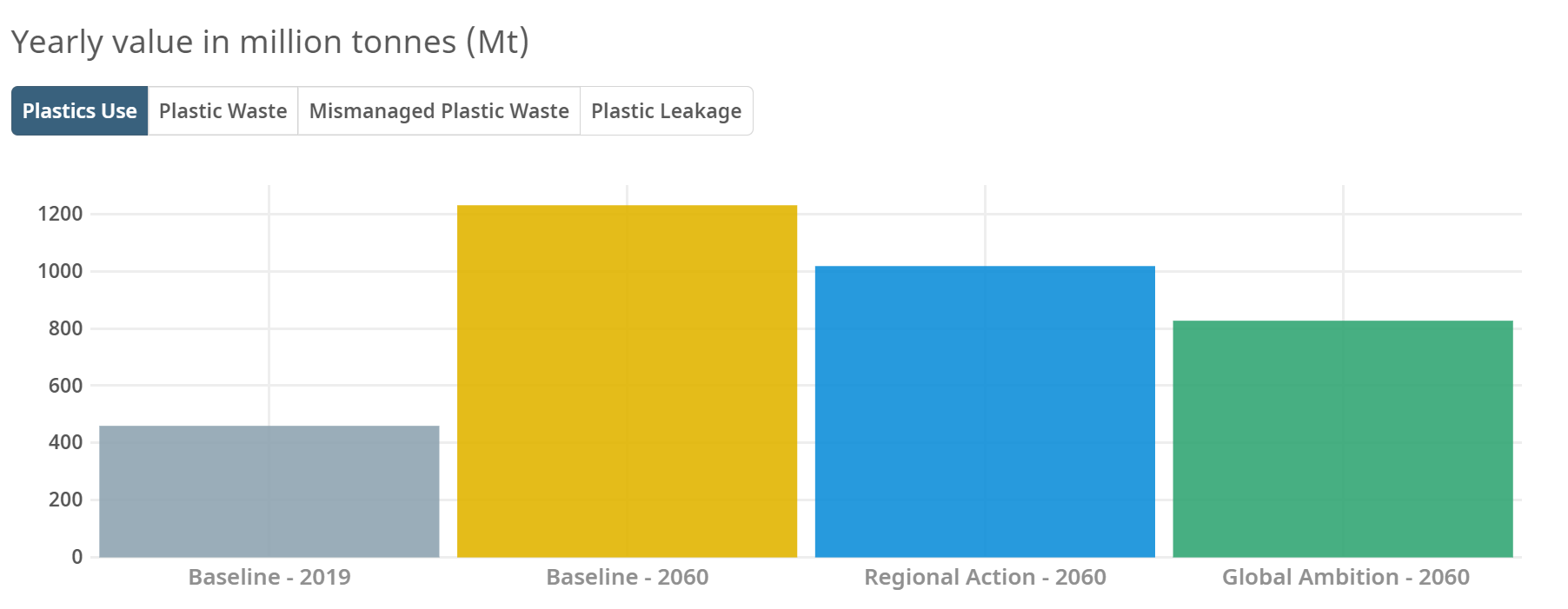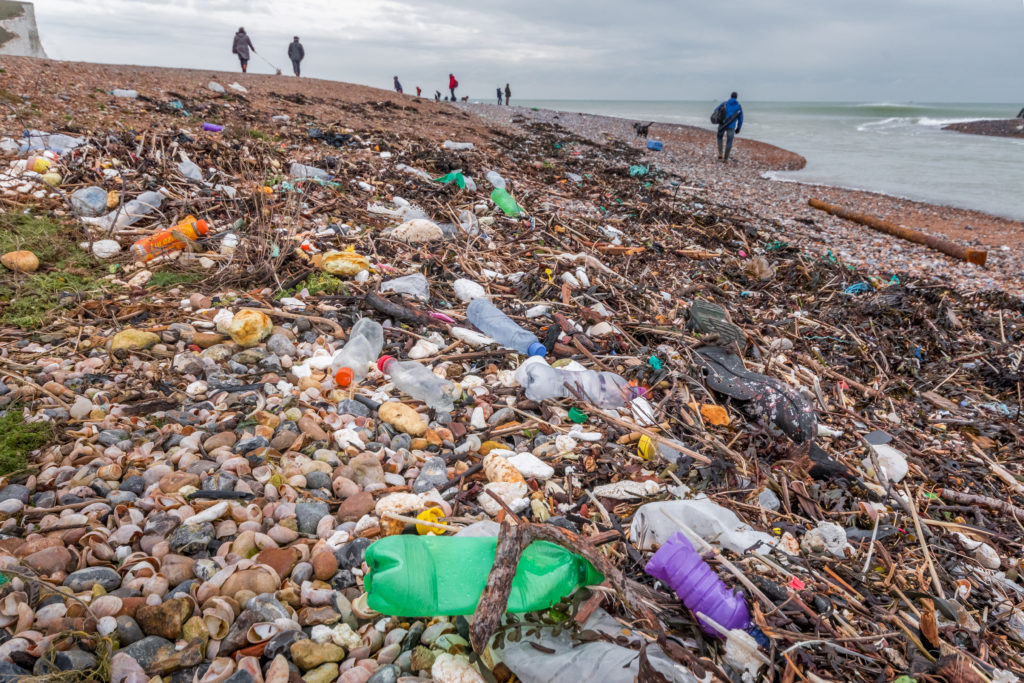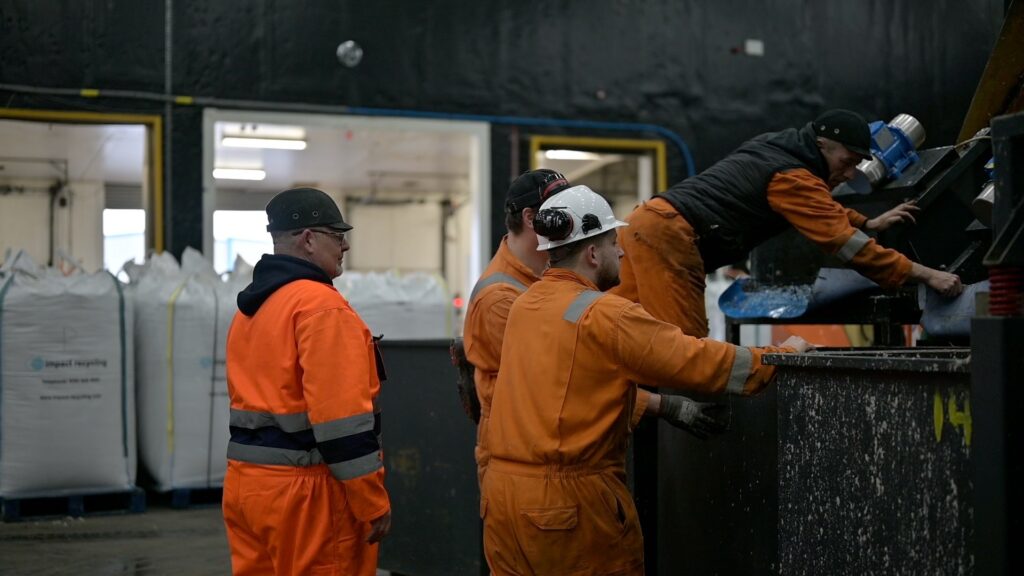Published last week (3 June) the report from the economic organisation predicted that around 50% of this will be sent to landfill, with the rest incinerated or littered.
The report, ‘Global Plastics Outlook: Policy Scenarios to 2060’, looks at the impact of two potential scenarios. The first being “a regional action scenario comprising a mix of fiscal and regulatory policies primarily in OECD countries could decrease plastic waste by almost a fifth and more than halve plastic leakage into the environment”.
The second is a global action scenario where “more stringent policies implemented worldwide could decrease plastic waste by a third and almost completely eliminate plastic leakage to the environment”.
‘Radical action’
The report explained that “without radical action to curb demand, increase product lifespans and improve waste management and recyclability, plastic pollution will rise in tandem with an almost threefold increase in plastics use driven by rising populations and incomes”.
It estimated that almost two-thirds of plastic waste in 2060 will be from short-lived items such as packaging, low-cost products and textiles.
OECD secretary-general Mathias Cormann said: “If we want a world that is free of plastic pollution, in line with the ambitions of the United Nations Environment Assembly, we will need to take much more stringent and globally co-ordinated action.”
He added: “This report proposes concrete policies that can be implemented along the lifecycle of plastics that could significantly curb – and even eliminate – plastic leakage into the environment.”

Rise
The report predicted plastics to rise “faster than most raw materials”, with the fastest growth in developing and emerging countries in Africa and Asia.
This is even though OECD countries will still produce much more plastic waste per person in 2060 than non-OECD countries (an average of 238 kg per year compared to 77 kg per year), the report continued.
In the absence of “bold new policies”, the global plastics consumption is projected to rise to 1,231 million tonnes in 2060, up from 460 million tonnes in 2019.
The report said: “Most pollution comes from larger debris known as macroplastics, but leakage of microplastics from items like industrial plastic pellets, textiles and tyre wear is also a serious concern.”
The rise is predicted despite an expected increase in the use of recycled plastic in manufacturing new goods as well as technological advances and sectoral economic shifts.
Recycling
According to the report, the amount of successfully recycled plastic waste is projected to rise to 17% in 2060 from 9% in 2019. It added that “incineration and landfilling will continue to account for around 20% and 50% of plastic waste respectively”. However, the share of plastic that evades the waste management systems is projected to fall from 22% to 15%, the report stated.
More details available here.








Subscribe for free